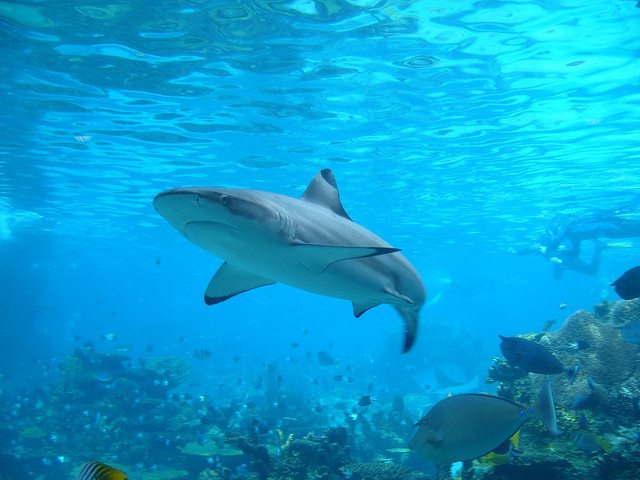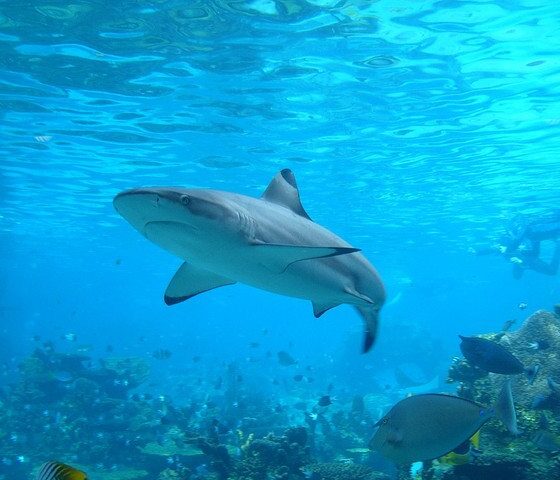

Environment
Acidic seas impairing fish species survival rates
High levels of carbon dioxide in the world’s oceans is impairing the survival mechanisms of species of fish, in particular predators like sharks who rely on their sense of smell to hunt.
Two scientific studies have analysed the high levels of acidity in oceans and the subsequent effects on their resident species. Sharks have been particularly highlighted as at risk, due to their reliance on smell to detect prey and dangers in the water.
Already hunted for food and sport, sharks are quickly becoming a severely persecuted species as their habitat is also being degraded or destroyed.
Some species are also known to become subject to behavioural changes due to the higher ph levels. The study highlighted reef fish and their tendency to become less cautious in the approach of predators due a nerve receptor in the fish’s nervous system being disrupted by the acidity.
The study, conducted by Danielle Dixson, a marine conservation biologist at the Georgia Institute of Technology in the US, tested the theory on 24 sharks in a 10-metre tank with two currents, or plumes of water.
After confirming that sharks do indeed pursue currents with the smell of food in them, the team of scientists enriched the tanks water with carbon dioxide – to levels predicted for mid-century at the current rate of greenhouse emissions.
Once the sharks were released back into the tank, with the smell of food continuing in one of the tanks water currents, the sharks avoided the aroma of food – disillusioned by the high levels of carbon dioxide in the water.
“Sharks are like swimming noses, so chemical cues are really important for them in finding food,” Dr Dixson said.
The study also revealed that the sharks became more dormant and less aggressive, “They significantly reduced their bumps and bites on the bricks, compared to the control group,” Dr Dixson added.
“It’s like they’re uninterested in their food.”
A second paper, aimed at testing the effects of high carbon dioxide levels on hatchlings concluded upon similar lines, with large numbers of infant sharks expected to die when exposed to the acidity.
Photo source: Allan Lee via Flickr
Further Reading:
Threatened shark species protected by new fishing ban
Giant Amazon fish being fished to extinction
UK government to lead fight against unsustainable fishing of sharks


 Environment12 months ago
Environment12 months agoAre Polymer Banknotes: an Eco-Friendly Trend or a Groundswell?

 Features11 months ago
Features11 months agoEco-Friendly Cryptocurrencies: Sustainable Investment Choices

 Features12 months ago
Features12 months agoEco-Friendly Crypto Traders Must Find the Right Exchange

 Energy11 months ago
Energy11 months agoThe Growing Role of Solar Panels in Ireland’s Energy Future





























